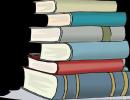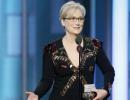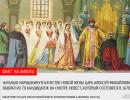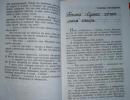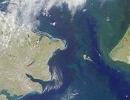Principles of classification of English dictionaries. General and private dictionaries. By word order
Usmanova Diana Akhmatzhanovna
Introduction
Lexicography as a branch of linguistics. Lexicographic sources
2.What is a dictionary?
Types of dictionaries and principles of their distribution
Conclusion
Main literature
Introduction
All the richness and diversity of the language's vocabulary is collected in dictionaries. It is difficult to imagine what would happen in our lives without dictionaries and reference books. Where and how would we find the meaning of a new word, the correct spelling, pronunciation, or an explanation of some event? Dictionaries and reference books are used by many: translators, students, specialists working in various fields of activity.
The mighty Russian language is great and varied, and its dictionaries are just as diverse. The vocabulary of any living language is in continuous change and addition. New words appear, reflecting the development of modern science, culture, art, and unused words are marked obsolete.
Dictionaries are an element of national culture, because words capture many aspects of national life.
Lexicography as a branch of linguistics
Lexicography is one of the most important branches of linguistics, especially today - in times of globalization. In simple terms, lexicography
This is the science of compiling dictionaries
The science of lexicography, as it is known today, is strikingly different from its early period. The so-called pre-dictionary period is the time when science explained incomprehensible and obscure words. In different civilizations, the pre-dictionary period lasted for different periods of time.
If we talk about the early vocabulary period, then it includes lexicography, which studies the literary language, which for many peoples was very different from everyday speech. Early lexicography includes explanations of ancient Greek monolingual writing, Sanskrit, etc.
Later, translator dictionaries appeared that provided explanations for the words and names of other peoples. It was lexicography of the passive type. The words were translated into “colloquial” speech.
Then came the time for active-type translation dictionaries and, finally, bilingual dictionaries of living languages. If early lexicography was created in order to understand the ancient speech of “dead” languages, then the emergence of dictionaries of “living” speech for humanity was a big step forward. It is noteworthy that the first dictionaries of interpretations appeared in countries that explained in writing using hieroglyphs.
The period of developed lexicography is the third and modern period of this section of linguistics. The advent of the third period of lexicography is associated with the rapid development of national literary languages.
At the present stage, lexicography can be divided into two subsections: practical lexicography and theoretical. The main difference is that the first section is designed for public use and rather serves a socially useful function. Theoretical lexicography studies, creates and develops macrostructures. At this level, vocabulary is selected, the dimensions of the dictionary are determined, etc.
Despite the fact that many official data consider the 20th century AD to be the period of developed lexicography, in fact the formation of science occurred much earlier, back in the late 18th and early 19th centuries AD.
It is known for certain that such a science as lexicography began to develop rapidly in the 19th century AD. Etymological, historical, reverse, frequency dictionaries, dictionaries of “related” languages and dialects, as well as dictionaries of the languages of famous writers began to appear.
Today there is a great variety of different dictionaries, a large percentage of which have already been transferred to the World Wide Web. Online dictionaries are in great demand among users, but printed copies are still not losing ground. As during the “dawn” of human civilization, and to this day, lexicography plays one of the most important roles in the world of linguistics.
What is a dictionary
A dictionary is a source (book) containing a list of words arranged in a certain order (usually alphabetically), with interpretations in the same language or with translation into another language.
Dictionaries perform many functions. The common function of all dictionaries is to record, systematize, accumulate and store knowledge about the world and the national language, and transfer this knowledge from generation to generation. Human memory also stores knowledge, but it is limited; it cannot accumulate and store knowledge for centuries. Only recording accumulated knowledge can preserve it for posterity. In this sense, the dictionary turns out to be the most convenient form of communication of our knowledge.
The science of compiling dictionaries, as well as the work of collecting and systematizing words and phraseological units, is called lexicography, and scientists involved in compiling dictionaries are called lexicographers. However, in order to use them purposefully, a special culture is needed - a lexicographic culture.
Lexicography is one of the applied (having practical purposes and applications) sciences included in modern linguistics. Its main content, as mentioned above, is the compilation of various language dictionaries. This is the science of dictionaries and how to make them most intelligently.
It is clear that you cannot compile dictionaries without understanding what a word is, how it lives and how it “works” in our speech. This is the task of lexicology. At the same time, the compilers of dictionaries, thinking deeply about words and their meanings, enrich the science of words with new observations and generalizations. Hence, lexicology and lexicography are closely related.
Thus, lexicography is a scientific technique and the art of compiling dictionaries, the practical application of lexicological science, which is extremely important both for the practice of reading foreign language literature and studying a foreign language, and for understanding one’s language in its present and past.
In order to more fully and correctly understand what dictionary compilers (lexicographers) do, you need to get acquainted with the results of their work, that is, dictionaries. Let's look at the different types of dictionaries used in the Russian language.
Today, on the shelves of libraries and bookstores there are many different dictionaries created by the works of lexicographers. A person’s education is measured not only by the amount of information he has acquired, but also, no less, by the awareness of what exactly he does not know, by the ability to pose questions to himself and look for answers to them. Answers to many questions can be obtained using dictionaries.
Classification of dictionaries. General classification
Classification of dictionaries is carried out on a number of grounds:
a) linguistic dictionaries (lexicons), providing background information about language units in various aspects;
b) encyclopedic dictionaries containing information about concepts and phenomena denoted by linguistic units;
2. Based on the selection of vocabulary, they differentiate:
a) dictionaries-thesauruses, striving for the maximum representation of all words of the language and examples of their use in texts (for example, “Dictionary of the Modern Russian Language” in 17 volumes, frequency, translation dictionaries, etc.);
b) private dictionaries, in which there is a principle of selecting vocabulary according to various criteria (for example, dictionaries of synonyms, homonyms, onomastic, terminological, dialect, etc.);
3.according to the method of describing the unit:
a) general dictionaries containing a multidimensional description of a word (for example, explanatory dictionaries);
b) special dictionaries that reveal individual aspects of words or relationships between them (for example, etymological, word-formation, spelling, combinability dictionary, etc.);
4.by unit of lexicographic description:
a) dictionaries with a unit less than a word (for example, a dictionary of morphemes);
b) dictionaries with a unit equal to a word (for example, a spelling dictionary);
c) dictionaries with a unit greater than a word (for example, a dictionary of phraseological units);
5. In order of material arrangement:
a) alphabetical dictionaries;
b) ideographic dictionaries, in which information is arranged thematically;
c) associative dictionaries, in which information is arranged according to semantic associations;
) by the number of languages in the dictionary:
a) monolingual;
b) bilingual;
c) multilingual dictionaries;
6. By purpose:
a) scientific dictionaries created for scientific purposes (for example, historical, reverse, grammatical, frequency, etc.);
b) educational dictionaries of different genres: explanatory, dictionaries of foreign language terms, spelling, phraseological and other minimum dictionaries aimed at fulfilling the educational function;
c) translation dictionaries created for comparison and transition from one language system to another (English-Russian, Russian-Ingush, etc.);
d) reference dictionaries, aimed at the average native speaker, intended for seeking help, obtaining certain information about language units.
CONCLUSION
Dictionaries and reference books are constant companions of our lives, serving us to expand our knowledge and improve our language culture. They are deservedly called satellites of civilization. Dictionaries are truly an inexhaustible treasury of the national language, and they are also a tool of knowledge, an intellectual guide, and simply fascinating reading. The habit of using dictionaries is one of the most useful among those that a person receiving a serious education can acquire.
MAIN LITERATURE
V.D. Chernyak. Russian language and speech culture for technical universities. Ed. "Higher School", Moscow 2003
V. I. Maksimova. Russian language and culture of speech. Moscow 2003
A. N. Vasilyeva. Fundamentals of speech culture. Moscow 1990
Modern Russian literary language: textbook allowance / V.D. Starichenok [etc.]; edited by V.D. Old lady. – Minsk: Vysh. school, 2012. – 591 p.: ill. - ISBN 978-985-06-2138-2.
Related information.
You will rarely meet a person who has not looked into a dictionary at least once in his life. With their help, we not only learn the meaning of certain words, select synonyms or antonyms, but also learn a lot of new things.
Let's talk about what kinds of dictionaries there are, what their classification is and remember the main "linguistic reference books" of the Russian language.
The Science of Dictionaries
Lexicography is one of the branches of linguistics that deals with the problems of studying and compiling dictionaries. It is she who deals with classification and puts forward requirements for the design of articles and their content.
Scientists who compile dictionaries call themselves lexicographers. It is important to note that dictionaries do not have authors, only compilers. This is due to the fact that they are compiled using special cards on which the meanings of words and their forms are recorded. In this case, the compiler can use both cards collected by him personally, and cards collected by an entire staff of linguists.
Classification of modern dictionaries
All dictionaries are divided into encyclopedic and philological, or linguistic.
Encyclopedic dictionaries provide information about various events. A striking example of such a dictionary is BES - Big Encyclopedic Dictionary. Encyclopedic ones include

What types of linguistic dictionaries are there? This group of dictionaries deals directly with words and their interpretation. They are also divided into bilingual and monolingual.
Bilingual dictionaries contain languages and their equivalent in a foreign language.
Monolingual dictionaries are divided into groups depending on their purpose.
The most used types of dictionaries
What types of dictionaries are there? Among the monolingual dictionaries, the following should be highlighted:

Famous dictionaries of the Russian language
Let's now discuss what kinds of Russian language dictionaries there are.
- The most famous is the “Explanatory Dictionary of the Living Great Russian Language,” compiled by the famous scientist V. I. Dahl. This guide contains about 200 thousand words. Despite the fact that it is already more than a century old, it is one of the most complete and widely used in our time.
- The second no less important “Explanatory Dictionary”, compiled by another famous linguist S.I. Ozhegov.
- The “Spelling Dictionary” was published by two different linguists - R. I. Avanesov and I. L. Reznichenko. Both dictionaries are impressive and will be useful not only for schoolchildren and students.
- We also note the “Dictionary of Synonyms” by Z. E. Aleksandrova and the “Dictionary of Antonyms” edited by L. A. Vvedenskaya.

What other dictionaries are there? You can find out the history of many familiar words by turning to N. M. Shansky’s work “A Brief Etymological Dictionary of the Russian Language,” and A. I. Molotkov’s “Phraseological Dictionary of the Russian Language” will help you become familiar with phraseological units and their meaning.
It is also worth noting the “Dictionary of Difficulties of the Russian Language,” edited by the famous Russian philologist, author of many monographs and a collection of rules of the Russian language D. E. Rosenthal and M. A. Telenkova.
Structure of a dictionary entry
In conclusion, I would like to add a few words about the structure of the dictionary entry.
Any dictionary entry begins with a heading word, which is often written in capital letters and highlighted in bold.
Let us note right away that the words used in dictionaries are always spelled correctly, so if you doubt the correct spelling of a particular word, it is not necessary to consult a spelling dictionary. It is enough to open any one you have at hand.
Most dictionaries also indicate the correct accent. Almost all Russian dictionaries will contain this information. What other notes are there?

After the heading word there is information about which part of speech it belongs to. Then its meaning is described or there is a list of synonyms, antonyms - it all depends on the type of dictionary. The dictionary entry ends with examples of use - quotes from books and magazines. If a given word has peculiarities in its use, this information is also indicated at the end of the article.
conclusions
We have discussed what lexicography is, what dictionaries are and their meaning, listed the main types, and also provided a list of the most useful for any educated person.
Remember, if you have difficulty writing or pronouncing a word, you can’t find the most suitable one, you just need to open one of the books we listed.
Multi-stage, branched division of the logical scope of a concept. The result of a concept is a system of subordinate concepts: the divisible concept is a genus, new concepts are species, types of species (subspecies), etc. The most complex and perfect K.... ... Philosophical Encyclopedia
classification- and, f. classification f. 1. Action according to value. Ch. classify. Classify materials collected during the expedition. BAS 1. Do not scold his chronological method of publishing grammars: for a historian, modernity is better than classes, and an index ... Historical Dictionary of Gallicisms of the Russian Language
- (new lat. from lat. claseis, and facere do). Distribution of items into departments. See SYSTEMATICS. Dictionary of foreign words included in the Russian language. Chudinov A.N., 1910. CLASSIFICATION Novolatinsk, from lat. classis, and facere, to do... ... Dictionary of foreign words of the Russian language
Cm … Synonym dictionary
In biology (from the Latin classis rank, class and facio do), the distribution of the entire set of living organisms by definition. a system of hierarchically subordinate groups of taxa (classes, families, genera, species, etc.). In the history of biol. K. was several. periods...... Biological encyclopedic dictionary
- (from Latin classis category and facere do) distribution, division of objects, concepts, names into classes, groups, categories, in which objects that have a common characteristic fall into one group. For example, classification of economic sectors... ... Economic dictionary
See SHELF SEDIMENTS. Geological Dictionary: in 2 volumes. M.: Nedra. Edited by K. N. Paffengoltz et al. 1978 ... Geological encyclopedia
In mining, the separation of particles of crushed minerals into homogeneous in size, density, and other products (classes). Classification is carried out in classifiers...
- (from the Latin classis category class and...fication), in logic, a system of subordinate concepts (classes of objects) of any field of knowledge or human activity, used as a means for establishing connections between these concepts or classes... ... Big Encyclopedic Dictionary
In information retrieval, the process of organizing documents into categories. In English: Classification English synonyms: Classifying See also: Indexing Financial Dictionary Finam... Financial Dictionary
Books
- Classification and structure of fields, Gurevich Harold Stanislavovich, Kanevsky Samuil Naumovich. The book “Classification and Structure of Fields” provides a classification of the fields of the world around us, based on the relationship between the internal structure of the fields of the macroworld and microworld. Birth, life and death...
- Classification and structure of fields (absolute theory), Gurevich Harold Stanislavovich, Kanevsky Samuil Naumovich. The book "Classification and Structure of Fields" provides a classification of the fields of the world around us, based on the relationship between the internal structure of the fields of the macrocosm and microcosm. Birth, life and death...
Russian lexicography linguistics
“The “typolomgy of dictionaries” is a complete classification of the types of dictionaries, reference books and encyclopedias. The type of a separate dictionary may be determined by the basic information it contains, as well as its general purpose.”
The first scientific typology of dictionaries, as noted above, was created by the Soviet scientist L. V. Shcherba in 1940. L. V. Shcherba proposed a classification of dictionaries based on six opposites:
1) “An academic dictionary is a reference dictionary. An academic-type dictionary is normative, which describes the lexical system of a given language, that is, it should not contain facts that contradict modern usage. If we take the opposite of academic dictionaries, then reference dictionaries can contain information about a wider range of words, even beyond the boundaries of the standard literary language.
And here is what Shcherba wrote about this: “People turn to a reference dictionary, first of all, when reading texts in not quite familiar languages or texts about unfamiliar subjects and especially difficult texts in foreign languages (or, which is essentially the same thing, ancient texts in native language), especially with unusual content. They turn to a standard (or academic) dictionary for self-checking, and sometimes to find the word they need in a given context.”
- 2) “Thesaurus is an ordinary (explanatory or translation) dictionary. A thesaurus is a dictionary that contains all the words that appear in a given language at least once. “In terms of the contrast between thesaurus and a regular dictionary, it is necessary to touch upon one practical issue that is of great concern to dictionary publishing houses - this is the question of the dictionary, i.e. the question of which words should be taken into the dictionary of one and the other type, and which - no. As was said at the beginning of this section, thesaurus is characterized precisely by the fact that its dictionary includes all the words that have ever been used by anyone, even if this happened only once (hapax legomena).In other types of dictionaries it is possible endless variations: in a consistent complete normative dictionary of a particular literary language, of course, all words that are unconditionally in circulation in this language must be given. And this does not present any special difficulties in terms of volume: most of the special terms are not included in the literary language (see . 2nd section); as for various new formations, their possibility should certainly be provided for, but only those that have acquired, so to speak, some individuality should be included in the dictionary...” wrote Shcherba.”
- 3) “An ordinary (explanatory or translation) dictionary is an ideological (ideographic) dictionary. In an ideological dictionary, words and concepts must be classified in such a way as to show their living interrelation. a dictionary in which entries are ordered not alphabetically, as usual, but by meaning. If an alphabetic dictionary serves to learn something about a given word, then an ideographic dictionary serves to learn something about a given meaning (for example, what words can express a given meaning). Despite the many ideas put forward, ideographic dictionaries in their pure form are still not widespread. Some approximation to an ideographic dictionary are dictionaries of synonyms and antonyms. Shcherba spoke about the problematic nature of creating such dictionaries: “Despite the obviousness of the principle of ideological dictionaries and despite the fact that the practical need for them is very great (which will be discussed below), dictionaries of this type are not in use, except for a few isolated attempts in this direction. The reason for this lies in the difficulty of the matter and in the complete lack of development of dictionary theory in general: only a few large people were engaged in dictionary work, and basically it was almost entirely left to the market. Linguistics of the 19th century, carried away by the discoveries of Bopp, Grimm, Rusk and others, as a rule, was not at all interested in the issues of the theory of lexicography. To create a real ideological dictionary, first of all, it is necessary to have a complete and very accurate list of words-concepts of a given language, and in order to compile such a list of words-concepts, it is necessary to clearly describe all the meanings of words in dictionaries of the usual type. But we saw in Section 3 how difficult this is and how even great philologists tend to hopelessly give up on it.”
- 4) “An explanatory dictionary is a translation dictionary: “Explanatory dictionaries usually arise in application to one or another literary language, either for the purpose of establishing it, its normalization (“Dictionary of the French Academy”), or for the purpose of explaining certain of its elements that are for some reason that is not entirely clear, ultimately, therefore, also in order to establish a literary language, but rather in the sense of its enrichment, and most importantly - the better development of its riches. Explanatory dictionaries are primarily intended for native speakers of a given language.
A translation dictionary arises from the need to understand texts in a foreign language. The satisfaction of this need, however, is often associated with the process of establishing a national language by translating the riches of a foreign literary language.”
5) “A non-historical dictionary is a historical dictionary: “Historical in the full sense of the term would be a dictionary that would give the history of all words over a certain period of time, starting from one or another specific date or era, and would indicate not only the origin new words and new meanings, but also their dying out, as well as their modification. As far as I know, such a dictionary still does not exist, and its very type has yet to be developed,” Shcherba wrote in his work “An Experience in the General Theory of Lexicography.”
Currently, there are several classifications (typologies) of dictionaries. Particularly noteworthy is the distinction between linguistic (primarily explanatory) and encyclopedic dictionaries, which, first of all, lies in the fact that in encyclopedic dictionaries concepts are described (depending on the volume and addressee of the dictionary, more or less detailed scientific information is given), in explanatory ones - - linguistic meanings. There are many dictionary entries in encyclopedic dictionaries in which the heading word is proper nouns.
An example of a dictionary entry from a linguistic dictionary:
“GROUNDS, -r k a, m. A small rodent of the family. squirrels, living in burrows and hibernating in winter.
An example of a dictionary entry from an encyclopedic dictionary:
Marmots, a genus of mammals of the family. squirrel Body length up to 60 cm, tail less than 1/2 body length. 13 species, in the North. hemispheres (excluding deserts and tundras); in Russia several species. Object of fishing (fur, fat, meat). They can be carriers of the plague pathogen. Some species are rare and protected.
The point of view is expressed that an encyclopedia is not a dictionary and has nothing to do with lexicography. The only reason to consider it a dictionary is the arrangement of the symbols of the described realities in alphabetical order. However, today lexicographers are increasingly inclined to a different point of view: the main “hero” of a linguistic dictionary is the word, the main “character” of the encyclopedic dictionary is a thing, a reality with its parameters. Linguists describe the existence of words, their forms and meanings, the authors of encyclopedias systematize the existence of reality with its things that have spatiotemporal and other characteristics. But these two beings are not isolated from each other, and in fact, linguists are always forced to deal with the problems of things, and “encyclopedists” - with the problems of words. The boundary between “words” and “things” that passes in our minds is arbitrary and sometimes elusive.”
“The following linguistic dictionaries are distinguished:
- 1. From the point of view of vocabulary selection: thesaurus-type dictionaries and dictionaries in which vocabulary is selected according to certain parameters:
- - by area of use: colloquial, vernacular, dialect, argot, terminology, poetic vocabulary, etc.
- - from a historical perspective: archaisms, historicisms, neologisms
- - by origin: foreign words, internationalisms
- - according to the characteristics of word types: abbreviations, onomastics, occasional words
- - by source: dictionaries of individual authors
- 2. From the point of view of revealing individual aspects (parameters) of words: etymological, grammatical, spelling, spelling, dictionaries of function words, etc.
- 3. From the point of view of revealing systemic relationships between words: nested, word-forming, homonymic, paronymic, synonymous, antonymic dictionaries
- 4. From the point of view of choosing a unit of description: dictionaries of morphemes, roots, combinations, phraseological units, quotes, etc.
- 5. From the point of view of describing a separate diachronic section: historical, different eras of modern language
- 6. From the point of view of the functional aspect: by frequency - frequent and rare words, by stylistic use - metaphors, epithets, comparisons, expressive vocabulary, by normative characteristics - difficulties, correctness,
- 7. In the direction of presentation of the material: based on the form - reverse, rhymes; based on the content - ideographic, thematic."


